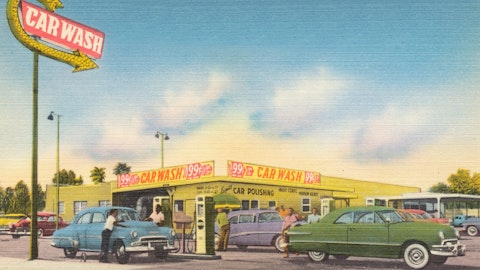Saga Partners, an investment management firm, published its first-quarter 2022investor letter – a copy of which can be downloaded here. During the first quarter of 2022, the Saga Portfolio (“the Portfolio”) declined 42.4% net of fees. This compares to the overall decrease for the S&P 500 Index, including dividends, of 4.6%. Since its inception on January 1, 2017, the cumulative return for the Saga Portfolio is 112.0% net of fees compared to the S&P 500 Index of 122.7%. The annualized return since inception for the Saga Portfolio is 15.4% net of fees compared to the S&P 500’s 16.5%. Try to spend some time looking at the fund’s top 5 holdings to be informed about their best picks for 2022.
In its Q1 2022 investor letter, Saga Partners mentioned Carvana Co. (NYSE:CVNA) and explained its insights for the company. Founded in 2012, Carvana Co. (NYSE:CVNA) is a Tempe, Arizona-based used car dealers company with a $6.2 billion market capitalization. Carvana Co. (NYSE:CVNA) delivered a -84.88% return since the beginning of the year, while its 12-month returns are down by -84.64%. The stock closed at $35.05 per share on May 18, 2022.
Here is what Saga Partners has to say about Carvana Co. (NYSE:CVNA) in its Q1 2022 investor letter:
“I first wrote about Carvana in this 2019 write-up. I initially explained Carvana’s business, superior value proposition compared to the traditional dealership model, attractive unit economics, and how they were uniquely positioned to win the large market opportunity.
Since then, Carvana has by far exceeded even my most optimistic initial expectations. While the company did benefit following COVID in the sense that customers’ willingness to buy and sell cars through an online car dealer accelerated, the operating environment over the last two years has been very challenging. Carvana executed exceedingly well considering the shifting customer demand in what is a logistically intensive operation and what has been a tight inventory environment due to supply chain issues restricting new vehicle production.
Shares have come under pressure following their first quarter results, which reflected larger than expected losses. The quarter was negatively impacted by a combination of COVID-related logistical issues in their network that started towards the end of the fourth quarter as Omicron cases spread. Employee call off rates related to Omicron reached an unprecedented 30% that led to higher costs and supply chain bottlenecks. As less inventory was available due to these problems, it led to less selection and longer delivery times, lowering customer conversion rates.
Additionally, interest rates increased at a historically fast rate during the first quarter which negatively impacted financing gross profits. Carvana originates loans for customers and then sells them to investors at a later date. If interest rates move materially between loan origination and ultimately selling those loans, it can impact the margin Carvana earns on underwriting those loans…” (Click here to see the full text)

Photo by Nima Sarram on Unsplash
Our calculations show that Carvana Co. (NYSE:CVNA) fell short and didn’t make it on our list of the 30 Most Popular Stocks Among Hedge Funds. Carvana Co. (NYSE:CVNA) was in 56 hedge fund portfolios at the end of the fourth quarter of 2021, compared to 58 funds in the previous quarter. Carvana Co. (NYSE:CVNA) delivered a -74.72% return in the past 3 months.
In May 2022, we also shared another hedge fund’s views on Carvana Co. (NYSE:CVNA) in another article. You can find other investor letters from hedge funds and prominent investors on our hedge fund investor letters 2022 Q1 page.
Disclosure: None. This article is originally published at Insider Monkey.





